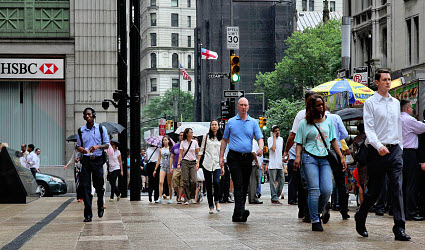A new tech from the company could be able to alter the way that mobile device users function.
A new form of Qualcomm geolocation technology that can be used for the formation of a series of on-the-fly, reliable wireless networks could soon also be able to provide the users of high end mobile devices throughout the United States with a completely new and different experience that would marry their digital identity and their live presence.
The tech has been labeled with the name GIMBAL smartphone technology.
GIMBAL has just recently been moved from the Qualcomm Labs into that chip makers unit for retail services. This geolocation based tech could prove to have a tremendous range of different applications. At the moment, focus is starting to be placed on the possibility that consumers will be willing to share their location in order to receive shopping offers and deals and improved convenience, in return.
Devices powered by GIMBAL could help to skyrocket geolocation based digital content.
This could help the location based marketing and advertising industry to take off, beyond the requirement for internet WiFi connection. This mobile tech first proved itself in Austin at the SXSW, in which it allowed the automatic establishment – and subsequent dismantling – of a number of ad hoc, secure networks for 150 highly interactive design sessions. This was accomplished by a Vancouver, Canada based wireless events startup.
According to the co-founder of Eventbase, Jeff Sinclair, “This wasn’t possible before GIMBAL. GPS wasn’t precise enough,” to spontaneously create indoor mapping and data collection at live events. Eventbase was the Canadian company that provided the service to the SXSW event.
A more basic version of this service was provided by the company to the Sochi, Russia Winter Olympics, as well as at the Summer Olympics in London in 2012. It started providing these services at the Winter Olympics in 2010 in its own home city.
Now that GIMBAL powered wireless services have successfully proven themselves through the trial at the SXSW, similar geolocation services will be available to iPhone and iPad users at the Tribeca Film Festival in New York, which will be held in April, as well as to the advertising awards show, Cannes Lion, in June in the South of France.


